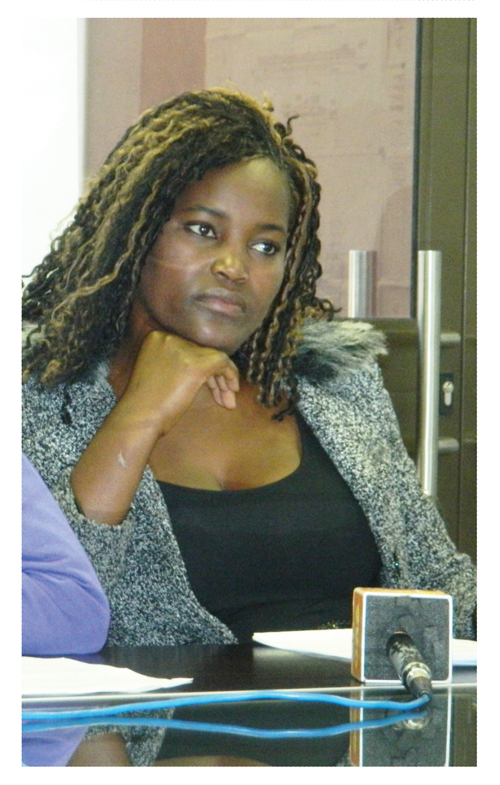
No more pregnant teenagers

Anna Hamalwa
“If we have to make a difference, there is a need to address reproductive health and rights including sex, sexuality and contraceptives. There is a need to re-look at our strategy on sex education and place more emphasis on reproductive health and rights.”
“We seriously need to ensure that adults getting under-aged girls pregnant are brought to book because according to our law, sex with a minor is rape,” said the National Young Women Association representative, Anna Hamalwa, this week at a media briefing.
Officially inaugurated in November 2011, the advocate movement was set up to serve as the voice through which all women can fight for the recognition of young women and fair representation.
She said that teenage pregnancy and teenage motherhood is just one of the many challenges adolescent females face on a daily basis adding that teenage pregnancies are common in rural areas.
Hamalwa said that this has a negative impact on the health of these young pregnant women and their infants. “It contributes to a high level of poverty, an illiterate nation, back street abortions and baby dumping, which happens when they do not want a child.”
Pregnant teenagers experience problems during and after childbirth and often feel neglected and isolated, ashamed to go to school while pregnant or after they give birth. She said that in most cases this leads to illegal abortions or baby dumping.
According to the 2007 Demographic and Health Survey, only 46% of women aged between 15 and 49 use any form of modern contraceptive. Limited use of contraceptives is linked to cultural, economic and geographical barriers.
Hamalwa said that although much has been done, more can still be done and their association is striving for better sexual education, referring to the World Population Day programme on teenage pregnancy and teenage motherhood that they held in conjunction with other organisations.
She said the pregnancy rate is unacceptable and wishes to see it reduced to the barest minimum. “We want to see teenagers equipped with knowledge and skills to negotiate the sexual relationships they want, at the time that is right for them and their partner, including the ability to resist the pressure.”
“The National Young Women Association would like to see sex education as a subject from as early as primary school. Teenagers must be taught the importance of contraceptives as well as abstinence.
They must also have easy access to information on reproductive health and the dangers and consequences of illegal abortions. When pregnant, supportive counselling services must be available”, advocated Hamalwa.
She said that it is important that all young people are empowered to make decisions about sex and relationships which are right for them and welcomed the launch of the Pregnancy Campaign in Rundu, and said that their organisation is doing all they can to help fight these ills in societies.
“It is the right time for us all, as stakeholders in youth affairs to not only help teenagers but to inculcate a culture of dialogue and behavioral change towards sex and sexuality.”











































